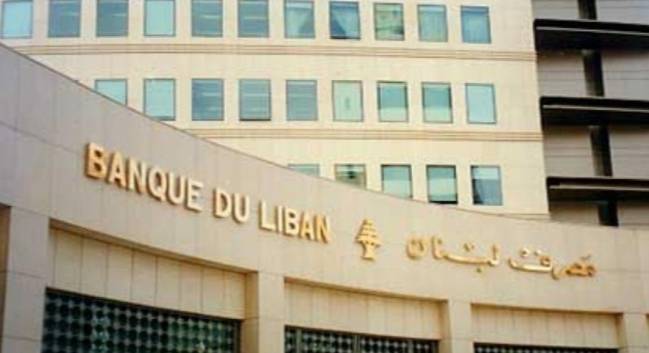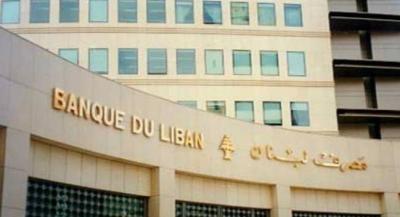Several senior managers at Lebanese banks and those responsible for foreign exchange and treasury operations are receiving inquiries from their counterparts in American and European banks regarding the nature of the procedures adopted to accompany the open cash exchange operations through the "Sayrafa" platform, in accordance with the Central Bank's decision just before the end of last year. This is particularly concerning the requirements to adhere to the "Know Your Customer" (KYC) rule, which is classified as a fundamental pillar in combating various forms of financial crime.
Some inquiries from abroad, according to information obtained by "Asharq Al-Awsat" from high-level banking sources, focused on how banks verify the sources of the cash influx from individuals and companies, noting a sharp increase in average exchanges from about $50 million to approximately $300 million on certain days following the latest statement regarding the sale of dollars by the Central Bank of Lebanon and its issuance on December 27. This was amended later through direct instructions to the banks.
It was noted that the questions—which were framed in a "friendly" manner and did not deviate from the usual communication mechanisms between the parties—reflected signs of concern among local bankers. This was particularly evident as they inquired about the details of lifting exchange ceilings and abandoning the fundamental condition of limiting operations to each bank's customers, as well as the justifications for the public mention of the possibility to approach specified outlets for completing transactions. There was also curiosity regarding the requirements to operate and open branches during official holidays.
The bankers’ concerns are validated by the international suspicions surrounding any transactions of unusual volumes. Despite considering the peculiarities of Lebanon's shift to a cash economy due to severe collapses in the national currency and the state's finances over 40 consecutive months, external bank administrations—positively acknowledging the resilience of the local financial sector and maintaining lines of dealings with it—are simultaneously raising their level of caution against the possibility of suspicious transactions that could have side effects.
Indeed, the successive statements issued by the Central Bank on December 27 and 28 contained enough motivations to trigger the "curiosity" of responsible officials in correspondent banks, especially among American ones, to understand what was happening with the execution of dollar exchanges. These banks execute most international financial operations regarding transfers to and from Lebanon and settle letters of credit and import bills that arrive in accounts related to the Lebanese banking sector and primarily the Central Bank.
With its decision to raise the exchange rate of the dollar through the "Sayrafa" platform from around 32,000 Lebanese pounds to 38,000 pounds, the Central Bank confirmed, in accordance with Articles 75 and 83 of the Monetary and Credit Law, that it would sell dollars at this rate in exchange for Lebanese pounds to individuals and institutions without a ceiling on the value of transactions. It also affirmed that there were no conditions related to executing these operations, which would be completed automatically when Lebanese banks submitted pounds to the Central Bank, receiving dollars in return instantly. It also noted that working hours for these operations would be extended until 5 PM on all working days until the end of January. Subsequently, it issued a statement advising any citizen whose usual bank did not comply to approach one of the banks that agreed to execute these transactions.
In light of these concerns, a senior banking official told "Asharq Al-Awsat" that Lebanon and its financial sector, which had reached an advanced stage in the digital management of cash transactions via banking cards and electronic accounts before the crises erupted in the fall of 2019, possess a strong legal framework with international standards for combating illicit financial transactions. However, it is essential to remain vigilant to dispel any external doubts regarding monetary policy and liquidity management in Lebanese pounds and dollars, and to prevent any currency smuggling across borders, to avoid exacerbating financial and monetary conditions, which could lead to a downgrade in Lebanon's rating by regional and international institutions specialized in combating money laundering.
The legal immunity, in most of its regulatory and procedural applications, is based on the provisions of Law No. 318 of 2001, which broadens the definition of acts falling under money laundering to include any intent to conceal the true source of illicit funds or to provide a false justification for this source by any means, transferring or exchanging funds with knowledge that they are illicit for the purpose of concealing or disguising their source, or assisting a person involved in committing the crime to escape responsibility. It also includes possessing or using illicit funds, or utilizing them to purchase movable or immovable property or to perform financial operations knowing they are illicit funds.
According to the banking official, it is crucial to comply diligently with the procedural obligations imposed by law, especially concerning verifying the true identity of regular customers of financial and banking institutions and identifying the ultimate beneficial owner in cases where transactions are conducted through agents or under the guise of pseudonyms belonging to individuals, institutions, or companies, or through numbered accounts. The same verification procedures must apply concerning the identities of one-off customers if the transaction or series of transactions requested exceeds a certain monetary threshold, in addition to retaining copies of all transaction-related documents and the official documents pertaining to the identities of the clients.
With the obligation placed on financial and banking institutions to identify indicators suggesting the possibility of money laundering operations and principles of caution to detect suspicious transactions, the law has assigned the "Special Investigation Commission," which is established at the Central Bank, the responsibility for investigating operations suspected of constituting money laundering crimes and determining the seriousness of the evidence and indications of the commission of these crimes.




